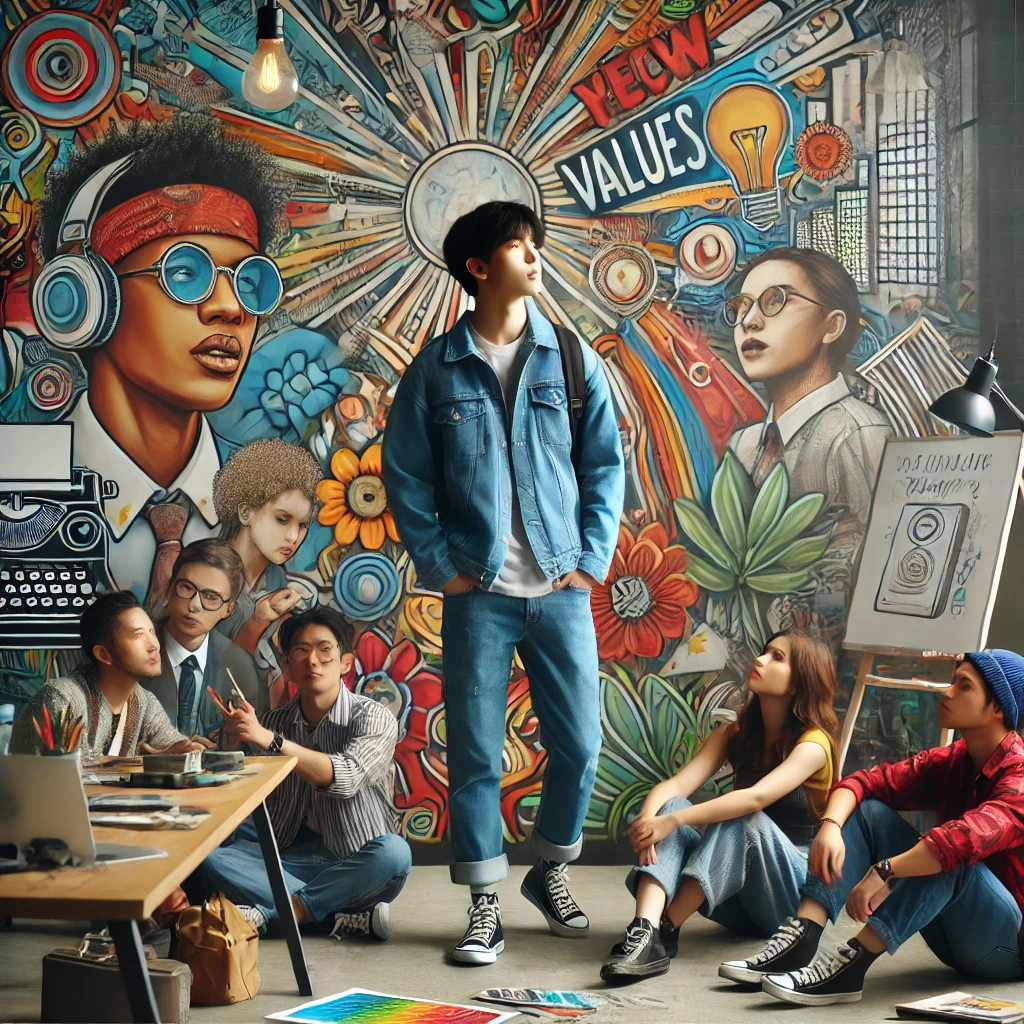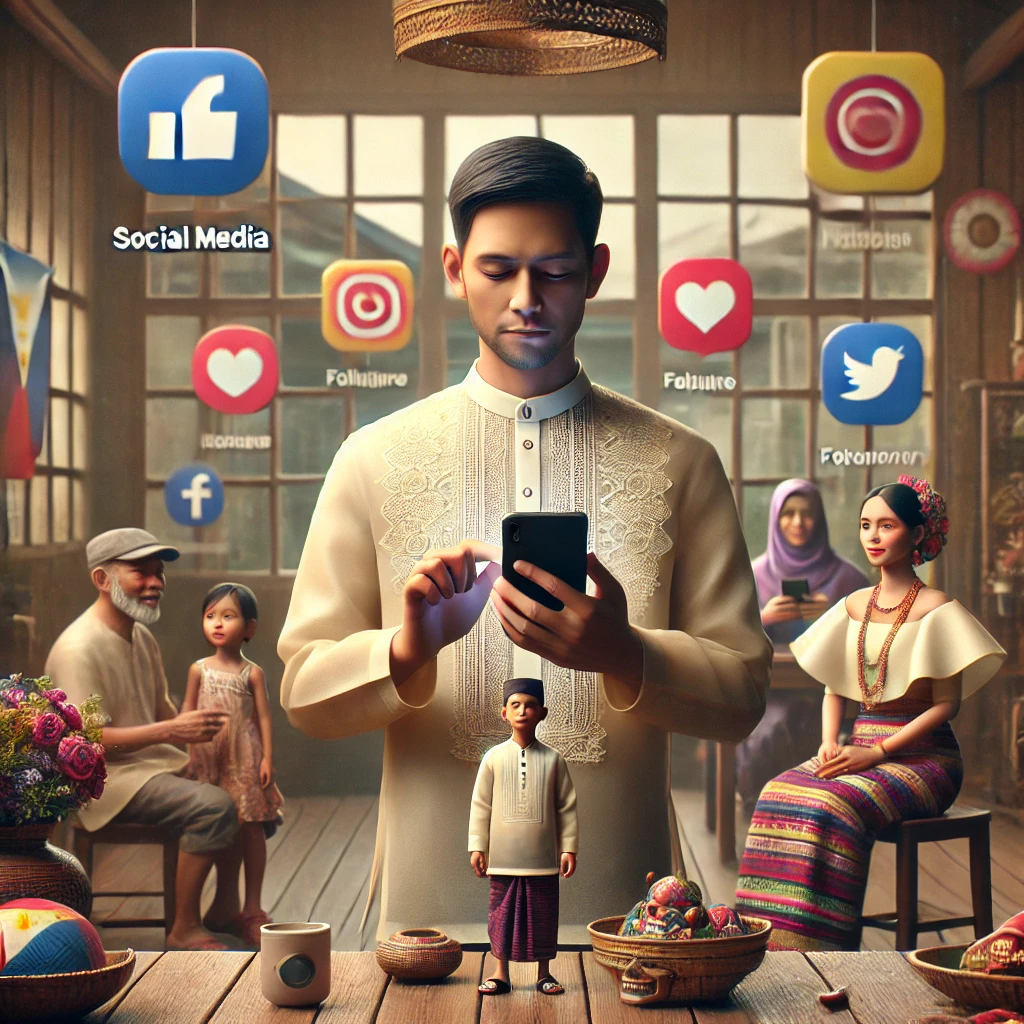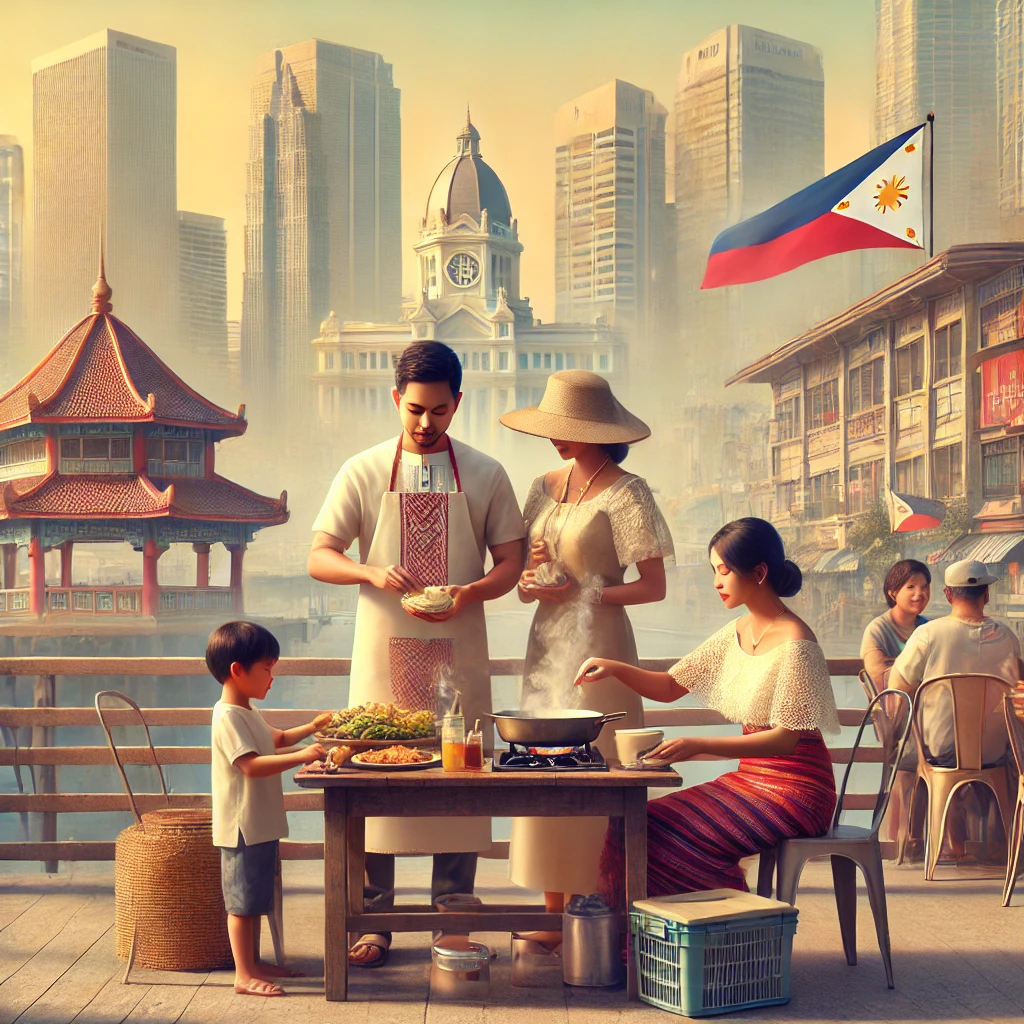In the tapestry of Filipino culture, a new thread is being woven—one that intertwines traditional values with emerging ideals of individualism and self-expression. This shift, while subtle, is reshaping the fabric of Filipino society, influencing everything from family dynamics to professional aspirations. As we delve into this transformation, we’ll explore how these new values are taking root in a culture long celebrated for its collectivist ethos and strong familial bonds.
The Philippines, an archipelago of over 7,000 islands, has always been a melting pot of cultures, with influences from Malay, Spanish, American, and Chinese traditions. This rich cultural heritage has given rise to a unique set of values that have long defined Filipino identity. However, as the country navigates the complexities of globalization and modernization, new values are emerging, challenging and complementing traditional norms.
In this blog post, we will examine the rise of individualism and self-expression in Filipino society, tracing their origins, exploring their manifestations, and analyzing their impact on various aspects of Filipino life. We will also consider the tensions and synergies between these emerging values and the traditional Filipino value system, providing a comprehensive view of a society in transition.
The Traditional Filipino Value System
Before we can understand the emergence of new values, it’s essential to establish a baseline understanding of traditional Filipino values. These values have been the bedrock of Filipino society for generations, shaping social interactions, family structures, and national identity.
Core Traditional Values
- Family-Centricity: The family is the nucleus of Filipino society. Extended family ties are strong, and familial obligations often take precedence over individual desires.
- Bayanihan: This concept embodies the spirit of communal unity and cooperation, where members of a community come together to achieve a common goal.
- Respect for Elders: Filial piety and deference to authority figures are deeply ingrained in Filipino culture.
- Hiya: Often translated as “shame” or “face,” this value emphasizes the importance of maintaining harmonious relationships and avoiding conflict.
- Utang na Loob: This refers to a debt of gratitude, creating a system of reciprocal obligations within social networks.
These values have historically promoted a collectivist mindset, where the needs of the group—be it family, community, or nation—are prioritized over individual aspirations. This cultural foundation has been instrumental in fostering social cohesion and resilience in the face of challenges.
However, as the Philippines has undergone rapid economic development and increased global integration, these traditional values have begun to evolve, making room for new ideals that place greater emphasis on individual identity and personal expression.
The Rise of Individualism in Filipino Society
Individualism, a concept that emphasizes the moral worth of the individual and the importance of personal goals and desires, has been gaining traction in Filipino society. This shift is not a wholesale rejection of collectivist values, but rather a nuanced integration of individualistic ideals into the existing cultural framework.
Factors Contributing to the Rise of Individualism
- Economic Development: As the Philippine economy has grown, so too have opportunities for personal advancement, encouraging individuals to pursue their own goals and ambitions.
- Globalization: Increased exposure to Western cultures through media, education, and travel has introduced Filipinos to more individualistic worldviews.
- Urbanization: The migration from rural areas to cities has weakened traditional community ties, leading to more atomized social structures.
- Education: Higher levels of education have empowered individuals to question traditional norms and assert their own perspectives.
- Technology: Social media and digital platforms have provided avenues for personal expression and the cultivation of individual identities.
The emergence of individualism is evident in various aspects of Filipino life. In the workplace, there’s a growing emphasis on personal career development and professional fulfillment. Young Filipinos are increasingly choosing careers based on personal interests rather than family expectations or societal pressures.
In education, we see a shift towards more student-centered learning approaches that encourage critical thinking and individual expression. The Philippine K to 12 Basic Education Program, implemented in 2013, aims to develop “holistically developed Filipinos” who are “21st century-ready,” emphasizing skills such as problem-solving and creativity.
Even in family dynamics, there’s a gradual shift towards more egalitarian relationships. While respect for elders remains important, young Filipinos are more likely to voice their opinions and make independent decisions about their lives, including choices about education, career, and marriage.
Self-Expression in the Filipino Context
Alongside the rise of individualism, self-expression has become an increasingly important value in Filipino society. This shift is particularly noticeable among younger generations, who are finding new ways to articulate their identities, beliefs, and aspirations.
Manifestations of Self-Expression
- Arts and Culture: There’s been a resurgence of interest in Filipino arts, with young artists blending traditional forms with contemporary styles to create unique expressions of Filipino identity.
- Fashion: Filipino fashion is evolving beyond traditional attire, with designers and consumers alike embracing styles that reflect personal tastes and global trends.
- Social Media: Platforms like Facebook, Instagram, and TikTok have become spaces for Filipinos to share their thoughts, creativity, and personal narratives.
- Activism: There’s a growing willingness among Filipinos, especially the youth, to speak out on social and political issues, challenging the traditional value of non-confrontation.
- Entrepreneurship: The rise of start-ups and small businesses reflects a desire for self-realization and the pursuit of personal passions.
The increased emphasis on self-expression is reshaping social norms and communication styles in the Philippines. While indirect communication and the use of euphemisms have long been hallmarks of Filipino interaction, there’s a growing trend towards more direct and assertive forms of expression, particularly among urban youth.
This shift is also evident in the evolving landscape of Filipino media and entertainment. Local content creators are producing more diverse and personal narratives, moving beyond traditional themes to explore individual experiences and perspectives. The popularity of vlogs, podcasts, and independent films reflects this trend towards more authentic and individualized forms of storytelling.
The Impact on Filipino Values: A Balancing Act
The emergence of individualism and self-expression doesn’t signal an abandonment of traditional Filipino values. Instead, we’re witnessing a complex negotiation between old and new, as Filipinos seek to balance their cultural heritage with evolving aspirations and global influences.
Areas of Tension and Adaptation
- Family Dynamics: While family remains central to Filipino life, there’s a growing emphasis on personal fulfillment within family structures. Young adults are more likely to pursue independent living arrangements, and there’s greater acceptance of non-traditional family forms.
- Career Choices: The traditional expectation of children following in their parents’ professional footsteps is giving way to more diverse career paths based on individual interests and market demands.
- Social Relationships: The concept of “hiya” is being reinterpreted, with a greater emphasis on authenticity in social interactions. However, the importance of maintaining harmonious relationships remains.
- Community Engagement: While the spirit of “bayanihan” endures, it’s taking new forms. Community service and volunteerism are increasingly driven by personal passions rather than just social obligation.
- National Identity: There’s a growing movement to redefine Filipino identity in more inclusive and diverse terms, acknowledging the multiplicity of experiences within the nation.
To illustrate these changes, let’s look at some data on shifting attitudes among Filipino youth:
| Aspect | Traditional Value | Emerging Trend (as of 2017) |
|---|---|---|
| Living Arrangements | Living with parents until marriage | 27% of young adults (18-34) live independently |
| Career Choice | Based on family expectations | 68% prioritize personal interests in career decisions |
| Social Media Usage | Limited personal sharing | 97% of internet users are on social media |
| Volunteerism | Community-driven | 54% volunteer based on personal causes |
| Views on Marriage | Essential life goal | 49% view marriage as a personal choice, not a necessity |
These statistics reflect a society in transition, where traditional values are being reinterpreted and integrated with new ideals of individualism and self-expression.
The Role of Education in Shaping New Values
Education plays a pivotal role in the emergence and propagation of new values in Filipino society. The Philippine education system has undergone significant reforms in recent years, aimed at preparing students for the challenges and opportunities of the 21st century.
Key Educational Reforms
- K to 12 Program: Implemented in 2013, this program extends basic education to 12 years and emphasizes the development of critical thinking and life skills.
- Outcomes-Based Education: This approach focuses on what students can do with their knowledge, promoting practical application and innovation.
- Mother Tongue-Based Multilingual Education: By incorporating local languages into early education, this policy aims to preserve cultural diversity while fostering individual expression.
- Integration of Technology: The increased use of digital tools in education exposes students to global perspectives and encourages self-directed learning.
These educational reforms reflect a shift towards more student-centered, globally-oriented learning that encourages individual thought and expression. However, they also aim to maintain a connection to Filipino cultural values, creating a bridge between tradition and innovation.
The Economic Dimension: Individualism in the Workplace
The rise of individualism and self-expression is particularly evident in the Philippine workplace, where traditional hierarchical structures are gradually giving way to more flexible and merit-based systems.
Emerging Workplace Trends
- Gig Economy: The growth of freelance and contract work allows for greater individual autonomy and work-life balance.
- Start-up Culture: The burgeoning start-up scene in the Philippines encourages entrepreneurship and innovation.
- Corporate Social Responsibility: Companies are increasingly aligning their CSR initiatives with employee values, recognizing the importance of personal meaning in work.
- Flexible Work Arrangements: The adoption of remote work and flexible hours reflects a growing emphasis on individual needs and preferences.
These trends are reshaping the Filipino work ethic, blending the traditional value of hard work with new ideals of personal fulfillment and work-life balance. According to a 2017 survey by JobStreet.com, 70% of Filipino employees considered work-life balance as a crucial factor in job satisfaction, indicating a shift from the traditional notion of self-sacrifice for career advancement.
The Digital Revolution: Catalyst for Self-Expression
The rapid digitalization of Philippine society has been a significant driver of individualism and self-expression. As of 2017, the Philippines ranked as one of the world’s most active social media users, with Filipinos spending an average of 4 hours and 17 minutes per day on social platforms.
Impact of Digital Technologies
- Personal Branding: Social media platforms enable Filipinos to curate and present their individual identities to a global audience.
- Digital Entrepreneurship: E-commerce platforms have lowered barriers to entry for small businesses, allowing individuals to monetize their skills and interests.
- Online Activism: Social media has become a powerful tool for advocating personal beliefs and mobilizing for social causes.
- Cultural Exchange: Digital platforms facilitate exposure to diverse global perspectives, influencing individual worldviews.
The digital realm has become a space where traditional Filipino values of community and sharing are reinterpreted through a more individualistic lens. Online communities formed around shared interests rather than geographic proximity are becoming increasingly important in Filipino social life.
Challenges and Opportunities
The emergence of individualism and self-expression in Filipino society presents both challenges and opportunities. On one hand, it has the potential to drive innovation, creativity, and personal growth. On the other, it risks exacerbating social inequalities and eroding traditional support systems.
Challenges
- Generational Divide: Differences in values between older and younger generations can lead to familial and social tensions.
- Economic Pressure: The emphasis on individual success may increase stress and competition in an already challenging economic environment.
- Cultural Preservation: There’s a risk of losing traditional cultural practices as individualistic values gain prominence.
- Social Fragmentation: Increased focus on personal interests could potentially weaken community bonds.
Opportunities
- Innovation: A culture that values individual expression can foster creativity and entrepreneurship.
- Global Competitiveness: Filipinos who are comfortable asserting their ideas may be better positioned to succeed in the global marketplace.
- Social Progress: Greater individual agency can lead to more diverse voices in public discourse, potentially driving positive social change.
- Cultural Evolution: The integration of new values with traditional ones can lead to a richer, more nuanced Filipino culture.
A New Filipino Identity
The emergence of individualism and self-expression in Filipino society represents not a rupture with the past, but an evolution of Filipino identity. As these new values intertwine with traditional ones, we’re witnessing the birth of a distinctly Filipino form of individualism—one that balances personal aspirations with familial and communal responsibilities.
This cultural shift is still in progress, and its full implications are yet to be seen. However, what’s clear is that Filipino society is demonstrating remarkable adaptability, finding ways to embrace new ideals while maintaining the core values that have long defined Filipino identity.
As we move forward, the challenge for Filipino society will be to continue nurturing this balance—to create spaces for individual growth and expression while preserving the spirit of collective care and responsibility that has been the hallmark of Filipino culture.
In this evolving landscape, education, policy-making, and community leadership will play crucial roles in guiding the integration of new values. By fostering critical thinking, cultural awareness, and social responsibility, Filipino society can harness the potential of individualism and self-expression to drive positive change while maintaining its unique cultural identity.
The emergence of these new values is not just a Filipino phenomenon but part of a global trend. However, the way these values are being interpreted and integrated into Filipino society is uniquely Filipino. It’s a testament to the resilience and adaptability of Filipino culture, pointing towards a future that is both rooted in tradition and open to new possibilities.
As we conclude this exploration of emerging values in Filipino society, it’s clear that we’re witnessing a fascinating period of cultural evolution. The Philippines stands at a crossroads, poised to forge a new identity that honors its rich heritage while embracing the opportunities of the modern world. In this journey, the values of individualism and self-expression are not replacing traditional Filipino values, but rather enriching them, creating a more diverse and dynamic cultural landscape for future generations.
Disclaimer: This blog post is based on research and data available up to 2017. Cultural trends and societal values are continually evolving, and more recent developments may not be reflected in this analysis. We encourage readers to consider this information as a snapshot of a particular period and to seek out more current sources for the most up-to-date understanding of Filipino society. If you notice any inaccuracies or have updated information, please report them so we can correct them promptly.
.




